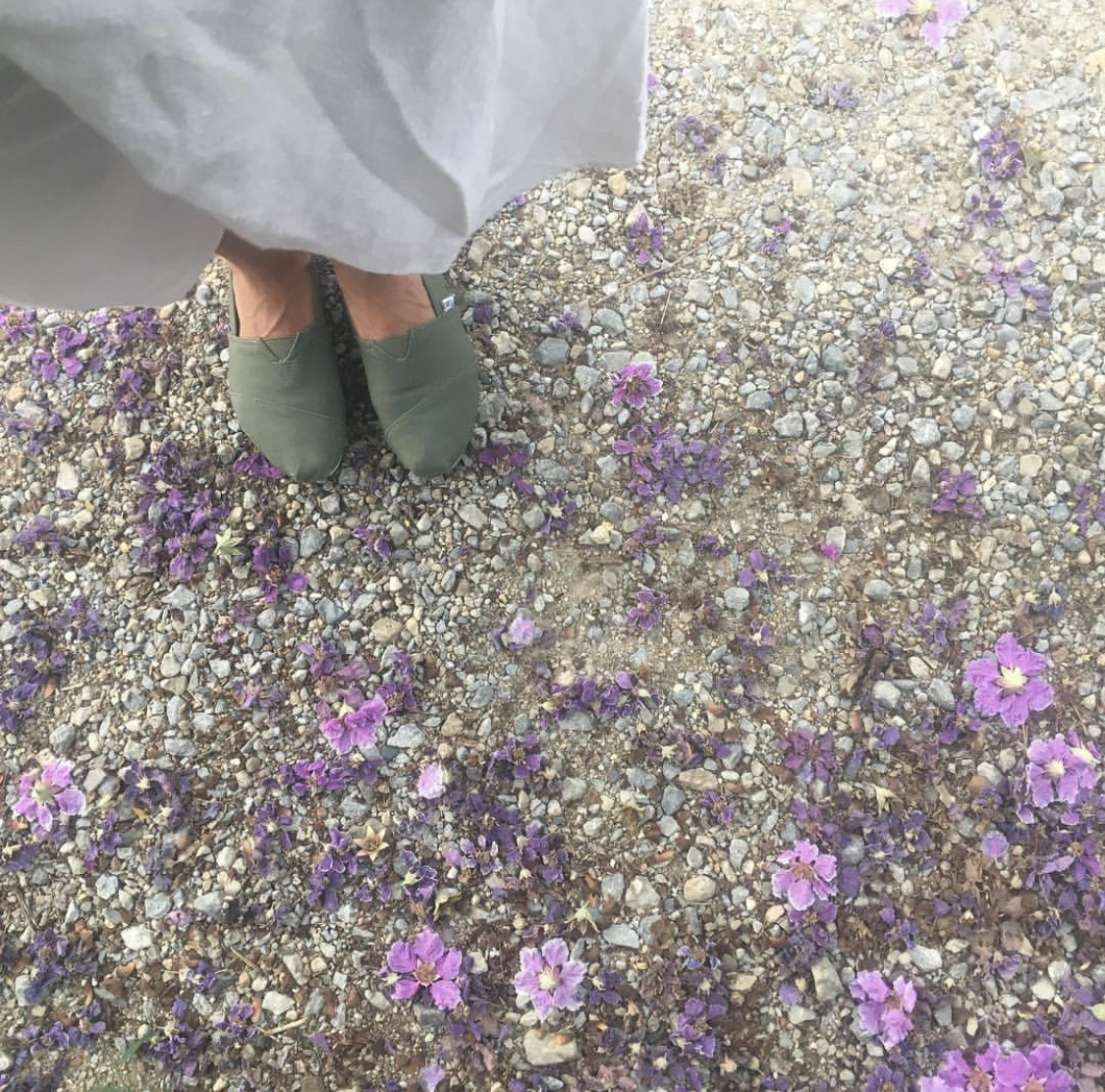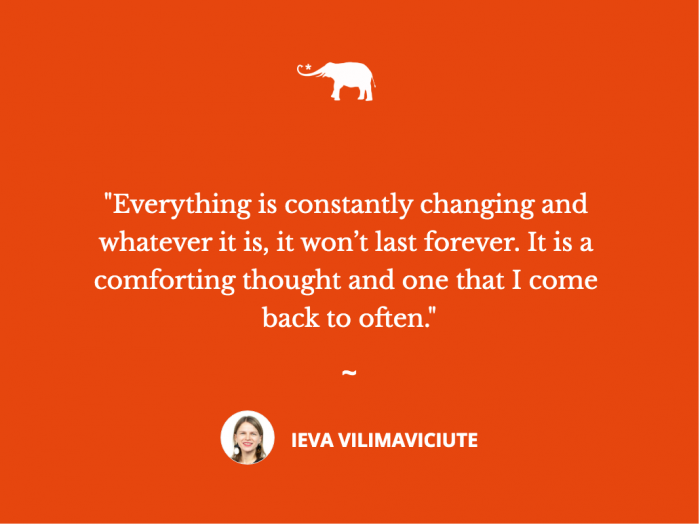Vipassana (a Buddhist term that is often translated as “insight”) is an ancient meditation technique, which involves observing your thoughts in a nonjudgmental way.
It is a practice of observing the sensations throughout the body without reacting to them—just letting them pass. The way I understand it, instead of shutting the thoughts to be quiet, you simply learn to observe them and let them be as they are.
Five years ago, I voluntarily spent 10 days in silence at a monastery in Northern Thailand practicing vipassana. No phone, no Wi-Fi, no reading, no writing, no exercise (not even yoga)—just a strict diet twice a day (no food after 12 p.m.) and meditation, meditation, meditation. No distractions from the outside world. Sitting in silence. Walking in silence. Observing your thoughts. Tuning into breathing.
I remember feeling so out of place the first morning in the canteen that looked almost like a jail with barely any light in and high bars on the window, everyone wearing white. I remember asking myself what is wrong with me, why did I decide to voluntarily torture myself? I remember struggling to make any sense of it—the boredom, the tears, and wanting to run away.
Surprisingly I also remember a few moments of delight when I was feeling that something within me has shifted—as if some sort of clarity was gained, some sort of precious gift of knowing that everything I truly need is within. I remember how everything seemed so bright on the last day (I kept staring at purple blossom on the ground when I made my way out of the monastery).
How loud everything seemed back in Chiang Mai and how tasty the food was! And I finally got to call my mom. I was feeling so grateful for this experience—as if those 10 days passed by in a second.
The time in vipassana was probably one of the most difficult things I’ve ever experienced but also one that brought me the most incredible insight and knowledge about myself. It made me feel more grounded and calmer (not the character qualities I tend to possess).
I remember when I came back to London, one of my best friends said she never saw me so calm (a confirmation that calmness is not something I tend to be associated with), and she was right. And although that feeling of calmness and clarity eventually faded as I got back into my busy city life (and I tend to meditate much less than I initially hoped I will), something from those 10 days of silence remained with me—that everything will pass. The good, the bad, the happy, and the sad—everything is constantly changing and whatever it is, it won’t last forever. It is a comforting thought and one that I come back to often.
This was a while back, and if I could spend 10 days in complete silence then, I should be fine to stay the same amount of time not leaving the comfort of my own home, right? That’s what I thought after unexpectedly getting a positive COVID-19 test result just a day before I was supposed to take a flight for Christmas holidays.
Thankfully I didn’t experience any major symptoms, but oh, how wrong I was to think that these 10 days would be easier than vipassana!
View this post on Instagram
Here are six reasons why:
1. Distractions.
You would think having a phone, Wi-Fi, access to Netflix and books would make the self-isolation easier. At first, I made a list; I’ll use this time to organise my wardrobe and kitchen cupboards, do yoga, meditate, read, catch up on work, and study Italian. Lots of things to do, but the motivation was nowhere to be found.
2. Expectations.
“You are in your comfortable, beautiful flat, surely you can make the most out of it”—the voice in my head didn’t shut up for days. And, of course, I’ve been grateful to be in my own space, but the expectations I had on myself to be productive weren’t helping, which led to:
3. Judgement.
Not progressing much with my “to-do” list (as days went by, the list became longer and longer), I grew frustrated but the motivation was nowhere to be found.
4. News from outside.
One of the most difficult things in vipassana was not to have access to family and worrying in case something bad might happen. Now being able to access phone and video calls brought some sort of calmness, but the nonstop need to check in to see if everyone was doing fine became obsessive. (Plus the headlines in the news.)
5. Social media.
The evil of it all! It was probably one of the key reasons why that “to-do” list never got fulfilled, as any free moment would be filled up with scrolling useless feeds.
6. Not choosing this voluntarily.
As much as vipassana was hard, it was my choice, and I was free to leave any time I wanted, whereas it is a completely different story when you are told that you are legally obliged to self-isolate.
But as vipassana ended, so did my 10-day self-isolation. Guess which one of those experiences I would repeat again?
~













Read 2 comments and reply